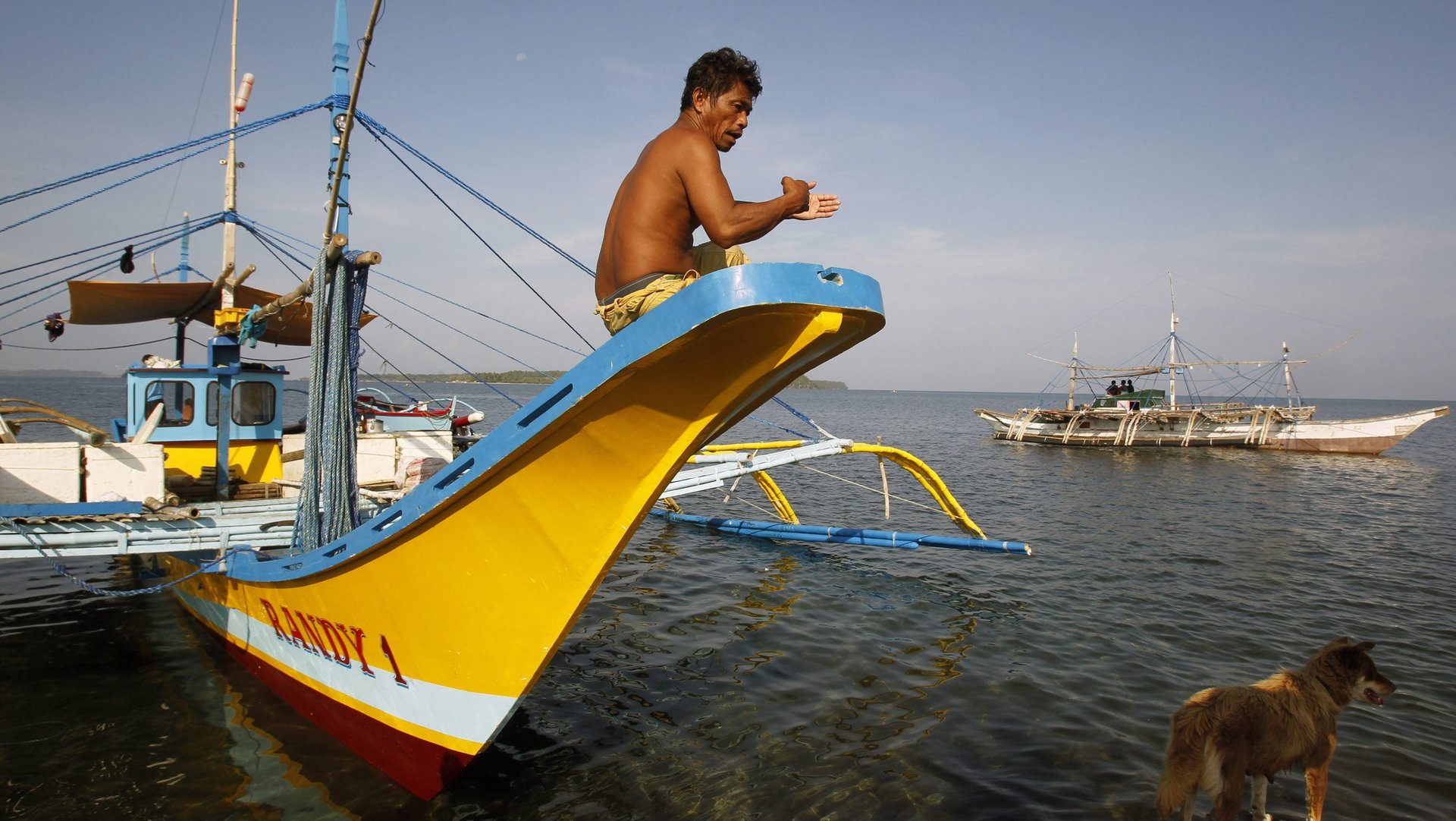China is letting Filipino fishermen return to a shoal it seized in 2012—for now
Fresh off his state visit to Tokyo, Philippine president Rodrigo Duterte said he promised to God to stop cussing and using slang in his speeches. Maybe the politeness of the Japanese influenced him, but regardless, the importance of speaking carefully was likely on his mind.


Fresh off his state visit to Tokyo, Philippine president Rodrigo Duterte said he promised to God to stop cussing and using slang in his speeches. Maybe the politeness of the Japanese influenced him, but regardless, the importance of speaking carefully was likely on his mind.
Before Tokyo, Duterte visited Beijing, his first state visit since becoming president in late June. In his previous role as mayor of Davao City, Duterte could speak freely with little consequence, and for some Filipinos his unfiltered, often profane speech made him a refreshing change of pace from most politicians. But in Beijing, as a head of state, Duterte had to choose his words carefully—especially in reference to Scarborough Shoal, which China seized from his country in 2012.
After taking Scarborough Shoal, the Chinese blocked—illegally, an international tribunal ruled—Filipino fishermen from accessing its rich fishing grounds, as they’d been doing for generations. Duterte wanted the block lifted, but he couldn’t ask Beijing to “allow” or “permit” it—not as a head of state. Doing so might be construed as acknowledging China’s sovereignty over the shoal.
“Pronouncements by officials, state officials, particularly the head of state himself can be binding,” Leila de Lima, a Philippine senator, noted yesterday.
She wasn’t the only high-ranking Filipino to point this out. Antonio Carpio, a supreme court justice, also warned about the danger of Duterte’s off-the-cuff remarks, including ones made in a Channel News Asia interview posted on Oct. 19, when the president said that China “has never invaded a piece of my country all these generations.” Carpio pointed out that Scarborough Shoal was defined as Philippine territory, and requested the government correct Duterte’s words “lest China claim, quoting him, that Scarborough Shoal is not Philippine territory.”
So Duterte had reason to be cautious, both in spoken and written words. And, it appears, he was. While in Beijing, he declined to sign a written statement that Beijing was “allowing” Filipino fishermen back to Scarborough Shoal.
Still, both sides agreed in principle that renewed access to the fishing grounds should be given, formal statement or no. This morning, reports in local Philippines media quoted Filipino fishermen saying they were suddenly no longer being blocked. “One of China’s patrol ships approached the boats of our fellow fishermen as they tried to enter the shoal. Surprisingly, they were not driven away,” one said.
Of course, sans a formal agreement, any such access is at the whim of China, which probably suits Beijing fine. As Julian Ku, a professor at the law school of Hofstra University in New York, noted to Quartz:
This may be a result of both sides needing to avoid a formal agreement. The Philippines needed to avoid any agreement that recognized China’s sovereignty. China doesn’t want any agreement that doesn’t recognize its sovereignty. So quietly letting everyone back gives Duterte something to take home, but China can revoke at any time without appearing to renege on an agreement.
Meanwhile, it’s anyone’s guess which will return first: the blockade or Duterte’s habit of cussing.